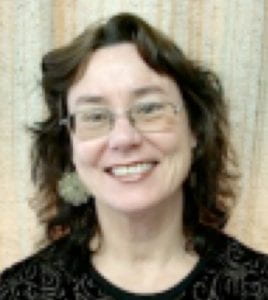Professor Margaret Simms: University of New England, New South Wales, Australia
 Margaret is Professor of Early Childhood at the University of New England. She came into early childhood through a circuitous route with experience in New Zealand of managing a service for young children with disabilities, developing that service into an inclusive education programme, and working in family support. This experience gave her a sound understanding of integrated early childhood service delivery and community work as it related to young children and their families. It is with these eyes that she is now examining the evolution of early childhood education, and questioning the role of the education discourse in that evolution. This work includes analyses of neoliberalism and post-colonialism, in particularly how these competing discourses impact on the evolution of early childhood in countries newly developing policies and systems. Margaret has published widely and both her infant and toddler text and her social inclusion text are used in various universities throughout Australasia.
Margaret is Professor of Early Childhood at the University of New England. She came into early childhood through a circuitous route with experience in New Zealand of managing a service for young children with disabilities, developing that service into an inclusive education programme, and working in family support. This experience gave her a sound understanding of integrated early childhood service delivery and community work as it related to young children and their families. It is with these eyes that she is now examining the evolution of early childhood education, and questioning the role of the education discourse in that evolution. This work includes analyses of neoliberalism and post-colonialism, in particularly how these competing discourses impact on the evolution of early childhood in countries newly developing policies and systems. Margaret has published widely and both her infant and toddler text and her social inclusion text are used in various universities throughout Australasia.
Professional Development Workshop for Teachers
Children’s rights: a different planning approach
When we work with young children we are often focusing on what we think they need to learn. Often our planning identifies what children do not know and we work out what we are going to do to help them gain that knowledge or skill. Many years ago we used checklists that told us the sequence of knowledge and skill development so we could easily identify what steps we should address and when. One of the key criticisms of this approach is the assumption that all children, across all cultural contexts, follow the same sequences of development. We now know that is not the case, and post-colonial research has helped identify the importance of culture and context, and the need for education and educators in each country to shape their own path in the voyage that is children’s learning and development. In this talk I present to you a way of thinking about, and engaging in, planning for children’s learning that takes a rights-approach; one that, from the beginning, takes into account children’s unique ecological niches so that educators can celebrate children’s strengths in the context of their families, communities and culture.
Keynote Address
Is our voyage taking us to a Pasifika destination?
Pasifika early childhood education is evolving in an international context where neoliberalism is hegemonic and threatens to divert the Pasifika voyage to reach a western destiny. The Pasifika dream, as I understand it, is to develop a unique early childhood system that reflects Pasifika values, beliefs and practices so children learn to function to their best capacity both as Pasifika citizens and as citizens of the world. In this talk I will discuss the research that identifies the impact of neoliberalism on education and identify where I see this impacting on the work of post-colonial early childhood educators trying to shape their own, unique voyages in educational development. Whilst this might sound far removed from the work of early childhood educators working with children, it is, in fact, very relevant, as the influences of neoliberalism impact on every day practice, on how we think about our work and how we perform that work. As early childhood educators, you make choices about your practices every day. Are those choices steering your voyage towards a Pasifika destination?